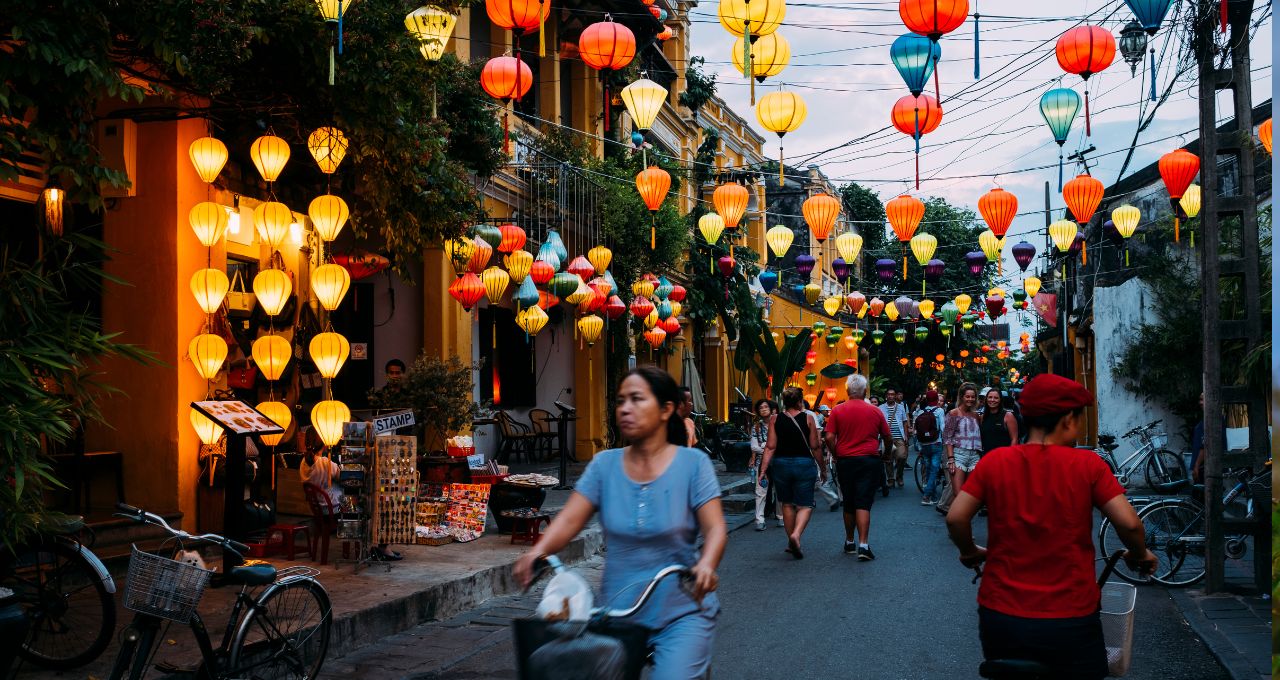As a Slow Travel practitioner for more than a decade now, I’m clearly partial to the many benefits it provides.
But I also believe that my experiences make me an astute observer of why this approach to travel works so well.
At the risk of provoking controversy, I’ll just come right out and say it: I think Slow Travel is the ideal way for everyone to see the world.
It’s admittedly easier to say this being the perpetual nomad that I’ve been for most of my adult life. I’ve had no mortgage to speak of, no kids to support, and nary a “real job” to contend with.
But regardless of your financial ties or career commitments, I believe that traveling slowly is generally the best way to go.
To back up this thesis, I’m prepared to give you eight reasons why Slow Travel is better for you, for your travel experience, and for the planet itself…
READ MORE: What is Ecotourism? The History & Principles of Responsible Travel
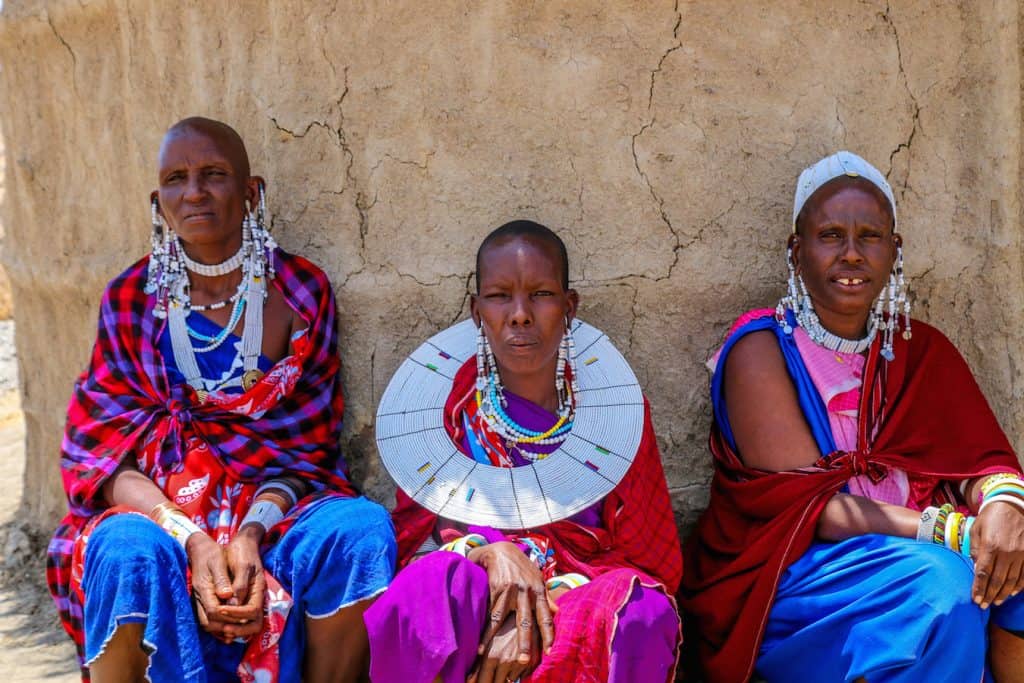
What Is Slow Travel?
Before we dive into some of the many reasons why Slow Travel is superior, perhaps a discussion of what this increasingly popular tourism industry buzzword means is in order?
In essence, Slow Travel is the opposite of Mass Tourism (a.k.a. Overtourism), which has proven to be increasingly devastating to some of the world’s most popular travel destinations over the last few decades.
Slow Travel means not trying to stuff a million different activities into an itinerary. In fact, sometimes it means experiencing the benefits of not having an itinerary at all.
It means not constantly moving from place to place, whether that be sights within a city, cities within a country, or countries within a continent.
It also means transporting yourself from one destination to the next with no regard for the amount of time it takes. It’s about enjoying the journey itself as much as the destination.
These concepts may sound somewhat cliché, but they’re all about changing our mindsets away from the notion of merely ticking off bucket lists and instead looking at travel as a means of having more immersive experiences.
The goal is for these experiences to give us a deeper understanding of the places we travel, as well as more organic experiences that will help us understand local people, traditional cultures, and the environment in which they live.
READ MORE: Hawaiian Mythology: An Intro to Hawaiian Gods, Goddesses & Legends)
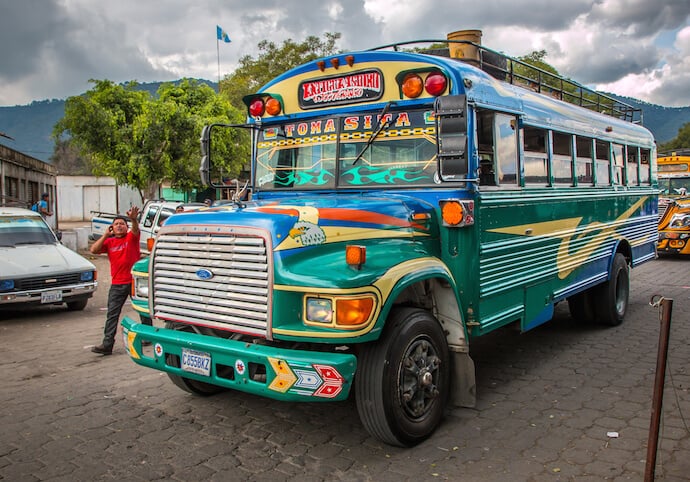
Why Slow Travel Is Better
1) Slow Travel Is Cheaper
Slow Travel is cheaper due to the fact that transportation is among the most expensive aspects of traveling, especially for budget travelers like me.
Every plane, train, or bus pass adds to the overall cost of a trip.
Also, whether you’re staying in eco lodges, hotels, or glamping, accommodations are often discounted for longer stays. You can save a small percentage for staying a week vs. a day, or get a larger reduction for a month as opposed to a week.
Even eating in transit can be more expensive!
In other words, staying in one place for longer periods of time has many money-saving perks. One of them is that all of those travel funds aren’t being spent on constantly moving from point A to B to C to D.
READ MORE: The 25 Most Unusual & Unique Hotels in the World
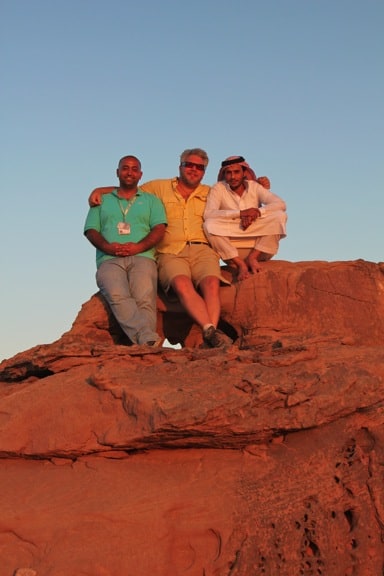
2) Slow Travel Provides More Memorable Experiences
Generally, the major objection people have to Slow Travel is that we’ll miss something and never get back to the same place again. That may be true.
But, in rushing around to take in every last tourist attraction as quickly as possible, we ultimately sacrifice both our sanity and our enjoyment of what we’re seeing.
The majesty of exploring the ancient city of Petra in Jordan resonates much more deeply when it’s taken in with a meal at a local restaurant and a night in a local Bedouin camp, rather than just a quick photo opp at the Treasury.
Was the point of traveling all the way to Greece to simply see the Acropolis of Athens before moving onto the next thing, or to spend time exploring the islands and experiencing local culture?
Go slowly, and you’re much more likely to get a travel experience that’s worth remembering!
READ MORE: The 7 Safest Countries in the Middle East for Americans to Visit
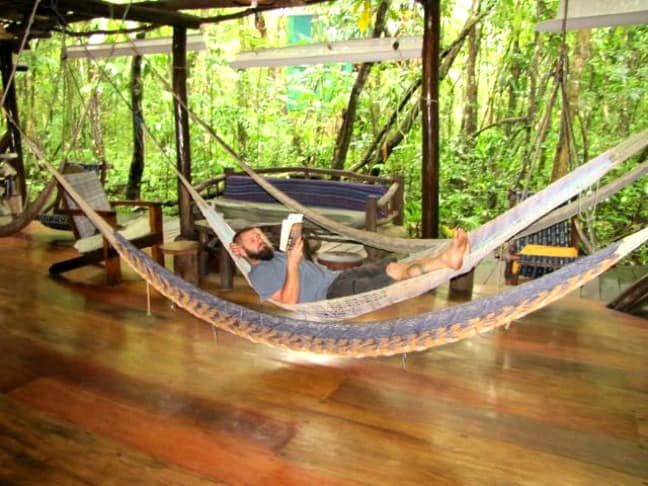
3) Slow Travel is More Relaxing
This one seems obvious because, for many travelers, the whole point of taking a trip is to chill out. And dashing from one spot to the next clearly isn’t the best way to do that.
That being said, you can’t really claim to have experienced Mexico if you never left your luxury resort in Cancun (which is more like no travel).
There is a happy medium to be discovered somewhere away from the luxury resorts, with lazy afternoons in little cafes along the promenades of colonial towns.
Or tiny bamboo beachside restaurants with papasan chairs in the sand that beckon you to kick back and watch a week’s worth of sunsets.
This place, and others like it, are where Slow Travel tends to take us. They are places where we can disconnect from the hustle and bustle, breathe deeply, and get something truly rejuvenating out of our travels.
READ MORE: 40 Fascinating Christmas Traditions in Mexico
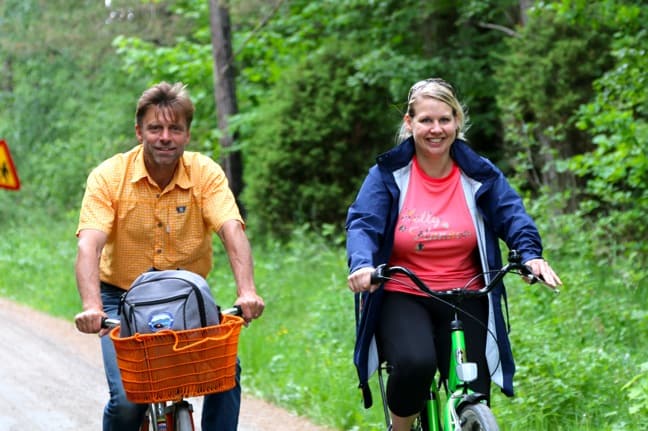
4) Slow Travel Is More Sustainable
We all have to accept the fact that traveling leaves a whopping carbon footprint, especially when airplanes are our primary mode of transport.
To oversimplify the situation (technically, the number of passengers changes everything), the slower our means of transport, the less that footprint is.
A plane is worse than a car; a car is worse than a train; a train is worse than a bus; and a bus is worse than bikes (or walking).
But the fact of the matter is that we all have to get there somehow, and not all of us have the time (or inclination) to travel from Alaska to Patagonia by bicycle.
Still, going more slowly– in whatever forms that takes for us– really helps to minimize our impact.
READ MORE: Going Green: 60 Tips You Can Use Every Day

5) Slow Travel Enriches The Trip
…or at least it opens up the opportunity for more enriching endeavors, such as signing up for a local language course, or cooking class, or whatever.
Lots of people have found that volunteering with NGOs is a rewarding way to travel, allowing us to enrich the lives of others.
Aren’t most of us looking for real experiences and interaction with locals anyway?
More outdoorsy travelers swear by work-stays on organic farms, which can be arranged through organizations like WWOOF, HelpX or Work Away.
Slow Travel allows for much more than just lying on beautiful beaches, souvenir shopping, and fine dining. It is a means by which our trips can mean more, both to us and to others.
READ MORE: The 20 Best Environmental Charities & Animal Charities
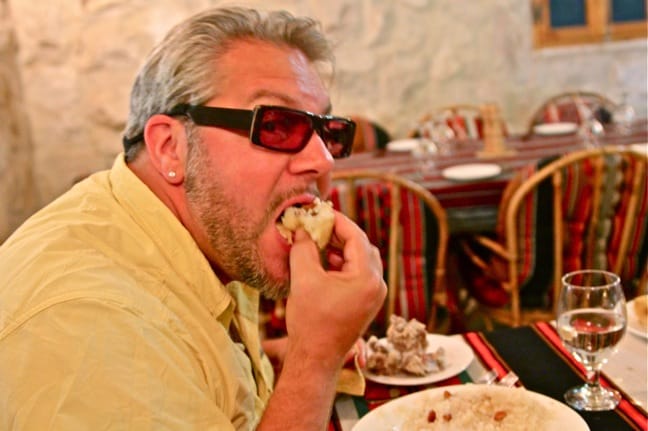
6) Slow Travel Takes Us Off The Beaten Track
The fantasyland referred to as “off the beaten track” seems to be the ultimate destination for many a traveler.
It represents a place where visitors don’t outnumber locals, where life meanders more naturally than it does via tour guide, and where the local culture we experience is one of authenticity rather than showmanship.
This place is much harder to find when we whiz through a city or country, looking only for the highlights.
Moving slowly allows time for wandering and wondering, going for a walk and getting lost, ducking into enticing bars and trying the traditional foods all the natives seem to be flocking to, then sitting where they sit.
It’s here– where motion and time become afterthoughts– that the beaten track of mass tourism finally disappears.
READ MORE: The Best Food Gifts From Around the World
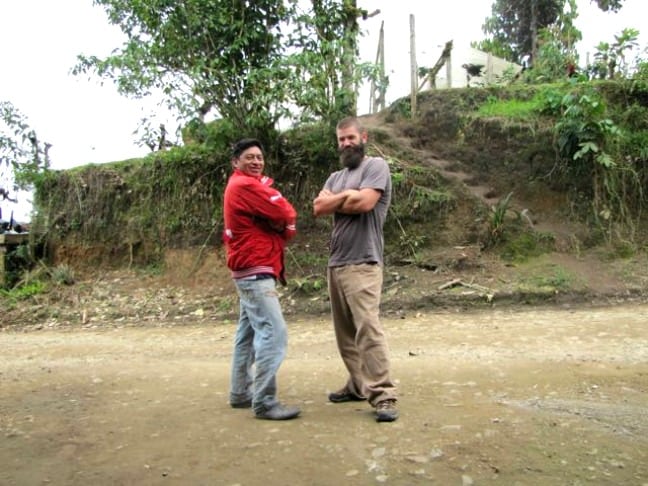
7) Slow Travel Results In More Organic Cultural Exchanges
If you want to truly know a place and feel its cultural heartbeat, that requires lingering.
Let’s say someone was to visit our hometown for a day trip or a weekend getaway: We wouldn’t say they really know what its like to be there!
It takes experiencing upon local events and cultural festivals. It takes developing connections with (or, at a minimum, recognition from) vendors, neighbors, and other members of the local community.
It takes time to discover favorite spots, such as the most comfortable coffeehouses, the mountain summits where you can watch perfect sunsets and sunrises, and the busy intersections to avoid.
It takes time to learn about the local specialty dishes, funny customs, and local folklore. It takes the sort of time that Slow Travel typically provides more of.
READ MORE: The 20 Best Festivals in the World
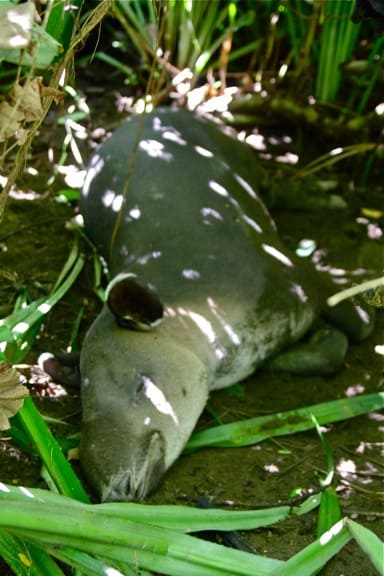
8) Slow Travel Offers The Element Of Surprise
Itineraries, schedules, guidebooks, and return tickets don’t provide us with much in the way of surprises.
Sure, they move us along slickly, smoothly and— if they work as intended— relatively hassle-free.
But when we get home from an adventure, it’s never these things that we’re itching to tell our friends about. In fact, you could argue that it’s when these things break down that travel is at its most interesting.
It’s about unexpected encounters with weird animals, like stumbling upon a sleeping Tapir in the middle of the Costa Rican jungle.
It’s about getting lost in the back alleys of Greece, only to find yourself in the middle of a neighborhood street party.
It’s about drunken sing-alongs with crazy Norwegians on an island in Sweden.
Traveling slowly doesn’t necessarily mean that the things on your itinerary never get done. It just means that they get done in their own sweet time.
READ MORE: 15 Reasons Responsible Tourism is Better for Everyone
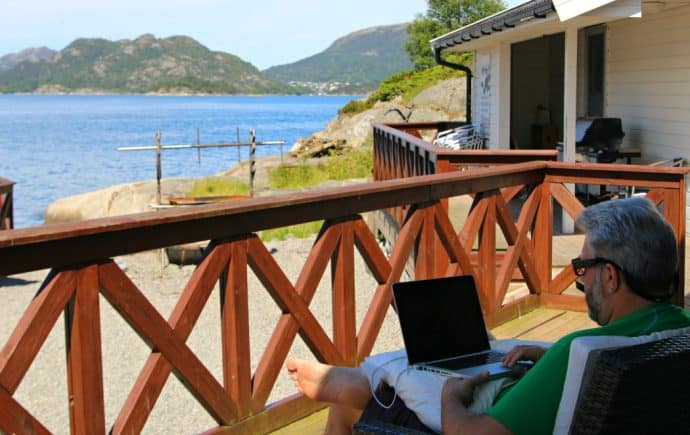
How to Stay Safe When Traveling Slowly
The ultimate point of Slow Travel is that we should savor our travel time, savor the sights and sounds and smells of local culture, and move to the unique local rhythms of a destination.
Whether you’re on a 2-week vacation, a year-long trip around the world, or living life as a permanent nomad, it’s all about losing track of the hours and seeing what makes the place special.
But what happens “the unexpected” puts a total damper on your trip? That’s where travel insurance comes in.
Travel insurance can cover everything from baggage loss/damage and flight cancellations to medical expenses, emergency medical evacuations, and rental car damage.The most important part is picking the best travel insurance plan for you.
There are myriad travel insurance companies and plans to choose from, but one of the most popular with our long-term traveling friends is SafetyWing.
Where most travel insurance plans only cover up to 90 days and a single trip, SafetyWing covers people for an unlimited number of days, which makes it great for digital nomads, expats, and long-term slow travelers.
Check out the SafetyWing website for more info to figure out which travel insurance plan is right for you. –by Jonathon Engels, with additional reporting by Bret Love
Jonathon Engels is a traveler, writer, and teacher who lived abroad as an expat for nearly 15 years. After completing a slow travel trip from Central America to Patagonia, he and his wife Emma recently built their own sustainable homestead near Elkin, North Carolina. His work can also be found on his personal blog.
